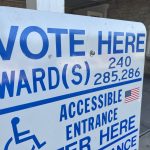Wisconsin DOJ Joins Supreme Court Brief in Support of Colorado’s Anti-Discrimination Law
Case Involves Colorado Wedding Website Designer’s Intent to Refuse to Create Wedding Websites for LGBTQ+ Couples; States Defend Constitutionality of Public Accommodations Law
MADISON, Wis. – The Wisconsin Department of Justice (DOJ) today joined a coalition in filing an amicus brief with the U.S. Supreme Court defending the constitutionality of Colorado’s public accommodations law, arguing that a business owner’s religious beliefs do not give a business open to the public the right to discriminate against customers.
“Public accommodations laws play a vital role in preventing exclusion and discrimination,” said Attorney General Josh Kaul. “This attack on equal access to stores and other businesses must be rejected.”
Colorado’s public accommodations law forbids a place of public accommodation from refusing to provide services to a customer because of their sexual orientation—as well as other protected characteristics like their race, sex, or religion—and prevents businesses from advertising their intention to refuse to provide service on such grounds. In July 2021, the U.S. Court of Appeals for the Tenth Circuit affirmed a district court ruling in favor of the state. The website design business petitioned the Supreme Court to review the case.
The attorneys general state in the brief that they share strong interests in upholding laws to protect their residents and visitors from unlawful discrimination, and support civil rights protections for historically disenfranchised groups, including prohibitions on discrimination in places of public accommodation – the restaurants, stores, and other businesses that are part of daily life in a free society. They further argue that if businesses open to the public can exempt themselves from these anti-discrimination laws based on personal objections to serving all customers, “many Americans would face exclusion from a host of everyday businesses or, at the very least, face the ever-present threat that any business owner could refuse to serve them when they walk in the door, simply because of their race, religion, sex, or sexual orientation.” Nothing in the First Amendment, the brief argues, requires states to allow this kind of discrimination and the harms it would cause.
The brief describes the states’ long history of enacting laws that prohibit discrimination in commercial establishments. Today, according to the brief, 26 states’ laws forbid businesses from discriminating against customers on the basis of sexual orientation. Additionally, 23 states and the District of Columbia prohibit advertising that services will be denied to customers on the basis of a protected characteristic – which the plaintiffs are seeking to do by posting a sign explaining the business’s religious objection to creating wedding websites for LGBTQ+ couples.
Discrimination against LGBTQ+ people is a severe and continuing problem. LGBTQ+ Americans are much more likely to be bullied, harassed, and attacked in hate crimes than their non-LGBTQ+ peers. According to the brief, this continuing discrimination harms the health and well-being of LGBTQ+ people, their families, and their communities, including increased rates of mental health disorders and suicide attempts, especially for LGBTQ+ youth.
Joining DOJ in filing today’s brief are California, Connecticut, Delaware, the District of Columbia, Hawaii, Illinois, Maine, Maryland, Michigan, Minnesota, Nevada, New Jersey, New Mexico, New York, North Carolina, Oregon, Pennsylvania, Rhode Island, Vermont, and Washington.
View the press release here.
NOTE: This press release was submitted to Urban Milwaukee and was not written by an Urban Milwaukee writer. While it is believed to be reliable, Urban Milwaukee does not guarantee its accuracy or completeness.






















